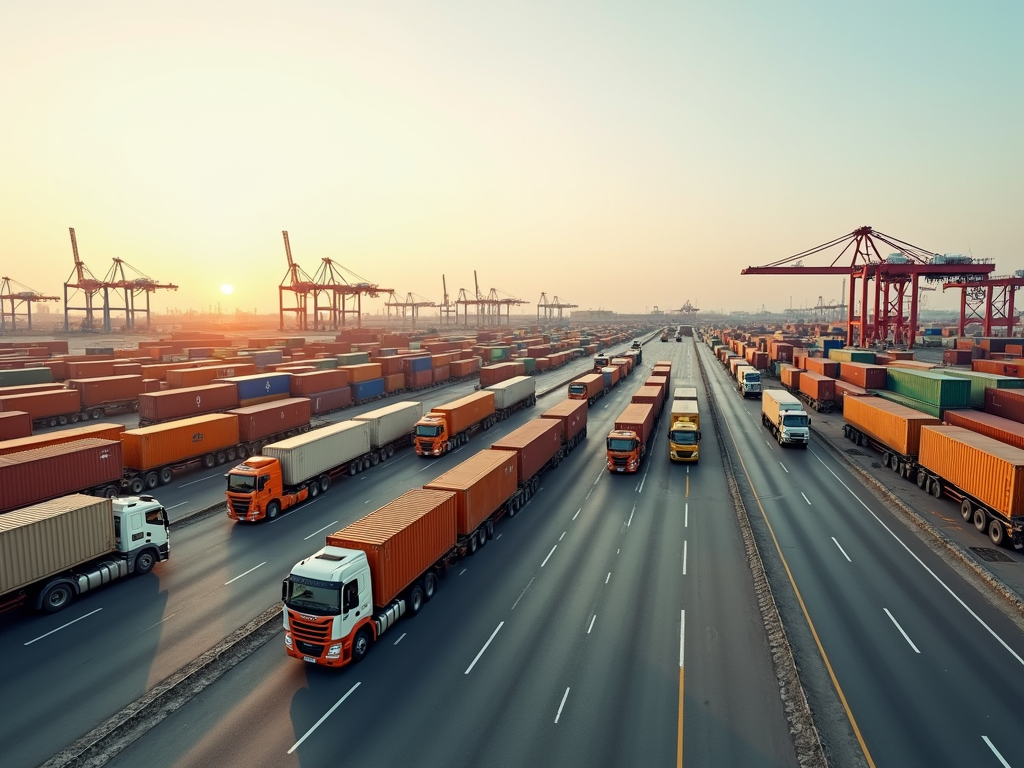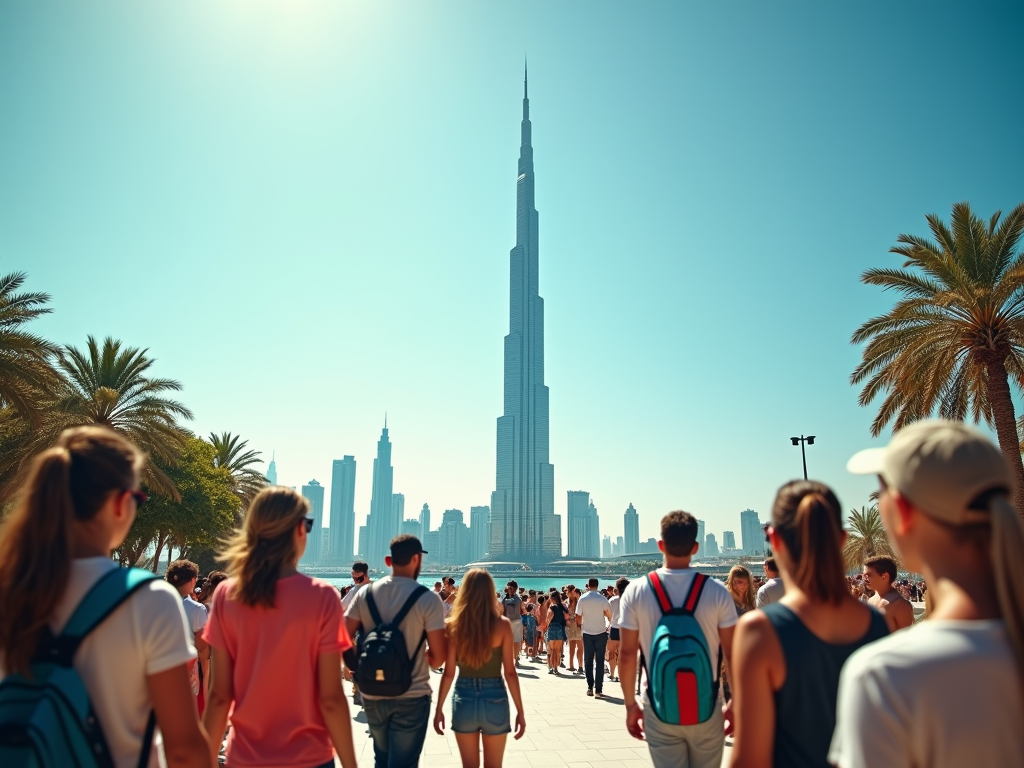Dubai, often hailed as the business hub of the Middle East, boasts a diverse economy underpinned by several key industries. These industries have not only propelled economic growth but also diversified revenue streams for the emirate, lessening its historical reliance on oil. Key sectors such as tourism, real estate, and information technology are leading the charge, bringing in substantial investment and fostering innovation. In this article, we will explore these pivotal industries, their contributions to business growth, and their impact on Dubai’s global economic standing.
Tourism: A Pillar of Economic Growth

With its luxurious malls, breathtaking architecture, and vibrant cultural scene, tourism is a significant driving force in Dubai’s economy. The emirate hosts millions of visitors annually, thanks to its strategic location and a wide array of tourist attractions. This increase in tourist traffic generates a ripple effect across various sectors, boosting not only hospitality and retail but also entertainment and transport services. To better understand tourism’s role, consider the following factors:
- Major Events and Festivals: The Dubai Shopping Festival and the Dubai Expo attract global attention, bringing in tourists and creating business opportunities.
- Luxury Hospitality: With over 700 hotels and resorts, the luxury accommodation sector continues to flourish, showcasing Dubai’s commitment to providing an exceptional tourist experience.
- Cultural Attractions: Museums and heritage sites, such as the Dubai Museum and the Al Fahidi Historic District, enhance the cultural tourism aspect.
- Adventure Tourism: Activities like desert safaris, skydiving, and underwater experiences attract thrill-seekers and nature lovers alike.
- Diverse Cuisine: With food being a central part of the experience, Dubai’s culinary scene caters to international tastes, enhancing the overall tourism appeal.
Real Estate: Transforming the Skyline

Dubai’s real estate sector has witnessed remarkable growth, shaped by a booming population and increasing expatriate workforce. The emirate has developed a competitive edge in high-end real estate, with iconic structures like the Burj Khalifa and Palm Jumeirah defining its skyline. This sector is not just about selling properties; it also encompasses commercial spaces that support businesses from various industries. Key aspects of the real estate sector include:
- Foreign Investment: Dubai offers attractive incentives for foreign investors, leading to increased developments in residential and commercial properties.
- Infrastructure Development: Continuous investment in infrastructure enhances connectivity, making it easier for businesses and residents.
- Regulatory Framework: The government’s initiatives to regulate and stabilize the property market foster a conducive environment for investment.
- Residential Projects: The ongoing demand for affordable housing and luxury villas ensures a balanced growth in various market segments.
- Sustainable Practices: The focus on sustainability is reshaping projects, aligning with global standards and attracting eco-conscious investors.
Information Technology: Innovation at the Forefront
The information technology (IT) sector is increasingly vital to Dubai’s growth strategy, significantly diversifying the economy. The emirate aims to become a smart city, evident from initiatives highlighting digital transformation across various sectors including healthcare, transportation, and security. The growth of IT in Dubai is characterized by:
- Start-up Ecosystem: An active start-up environment supported by incubation programs and funding opportunities is making Dubai a tech innovation hub.
- Smart City Initiatives: Projects like smart parks, integrated transport systems, and digital health solutions are transforming urban living.
- Education and Training: Institutions are focusing on IT education to cultivate a skilled workforce capable of supporting the digital economy.
- Cybersecurity: As businesses digitize, the growing emphasis on cybersecurity services becomes crucial for protecting sensitive information.
- Blockchain Technology: Dubai’s government endorses blockchain technology, seeking to digitize transactions and improve efficiency.
Logistics and Trade: Gateway to the Region
Dubai’s strategic geographical location has established it as a logistical hub connecting the East and West. The emirate’s port and airport facilities are among the busiest in the world, facilitating the rapid movement of goods and services. The logistics and trade sector is vital for Dubai, characterized by:
- Global Gateway: Ports like Jebel Ali and Dubai International Airport are pivotal in freight and passenger transport, enhancing trade links.
- Free Zones: Numerous free zones provide businesses with tax exemptions and full ownership, boosting investment.
- Transport Infrastructure: Continuous improvements in transport infrastructure ensure swift logistics and connectivity.
- E-commerce Growth: A surge in e-commerce has reshaped logistics needs, prompting investments in warehousing and last-mile delivery services.
- Trade Agreements: Dubai maintains strategic trade agreements which open doors for businesses across Asia, Europe, and Africa.
Financial Services: Driving Investment
The financial services sector in Dubai is robust, characterized by a range of international banks, investment firms, and a burgeoning FinTech landscape. This sector plays a critical role in supporting various industries and promoting economic stability. Key drivers include:
- Diverse Financial Institutions: A variety of banks and investment companies cater to different market needs, providing comprehensive financial services.
- Islamic Finance: Dubai’s commitment to Islamic banking and finance fosters unique investment opportunities aligned with ethical practices.
- Bold Regulatory Environment: Strong regulations and transparency attract global investors, enhancing the emirate’s reputation as a safe investment destination.
- Innovation in FinTech: The rising number of fintech start-ups indicates a shift towards technological advancements in financial services.
- Investment Funds: The emirate houses several investment funds focusing on various sectors, providing businesses with essential capital.
Conclusion
Dubai’s economy is a tapestry woven from multiple industries that together create a vibrant business environment. The ongoing growth of sectors such as tourism, real estate, information technology, logistics, and financial services underscores Dubai’s commitment to diversification and innovation. These industries not only attract investment but also provide ample opportunities for local and expatriate businesses alike. As Dubai continues to evolve, it is well-positioned to maintain its stature as a leading global business hub, showcasing resilience and adaptability in a rapidly changing economic landscape.
Frequently Asked Questions
1. What are the primary industries driving growth in Dubai?
The key industries include tourism, real estate, information technology, logistics, and financial services. Each sector plays a vital role in the overall economic growth of the emirate.
2. How does tourism impact Dubai’s economy?
Tourism significantly contributes to GDP by creating jobs in hospitality, retail, and the entertainment sector while attracting foreign investment.
3. Why is the real estate sector important for Dubai?
The real estate sector helps accommodate the growing expatriate population, attracts foreign investments, and contributes to municipal revenues and infrastructure development.
4. What initiatives support the IT sector in Dubai?
Dubai’s initiatives include smart city projects, support for startups, and investments in education and training focused on technology skills.
5. How does Dubai position itself as a trade hub?
Dubai’s strategic location, advanced logistics infrastructure, free trade zones, and comprehensive trade agreements enhance its role as a global trade gateway.
